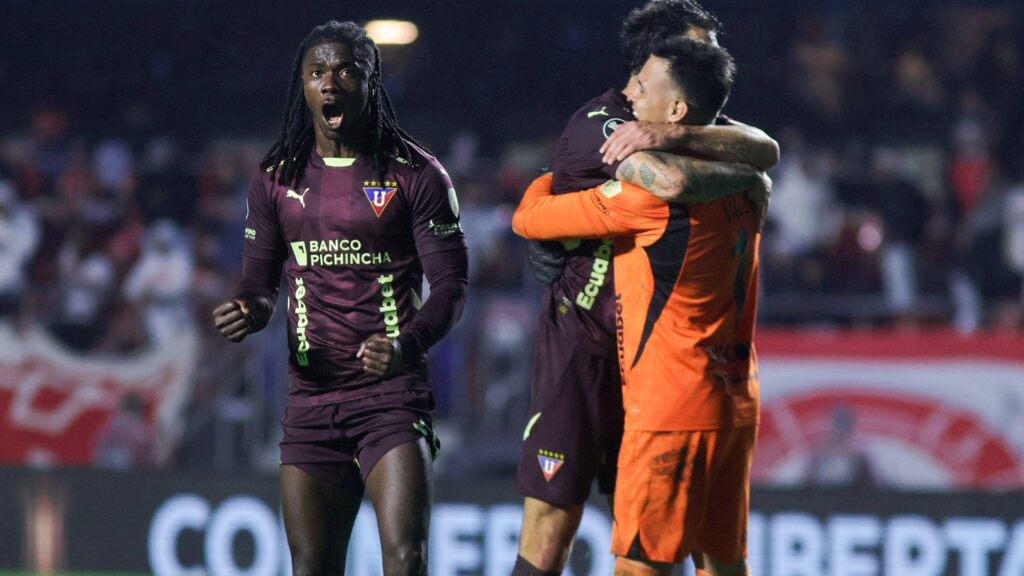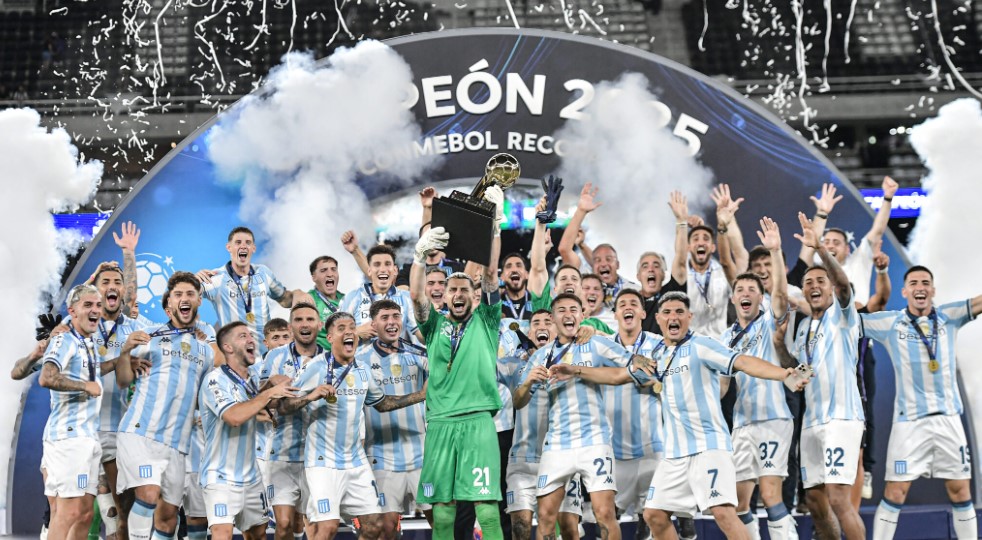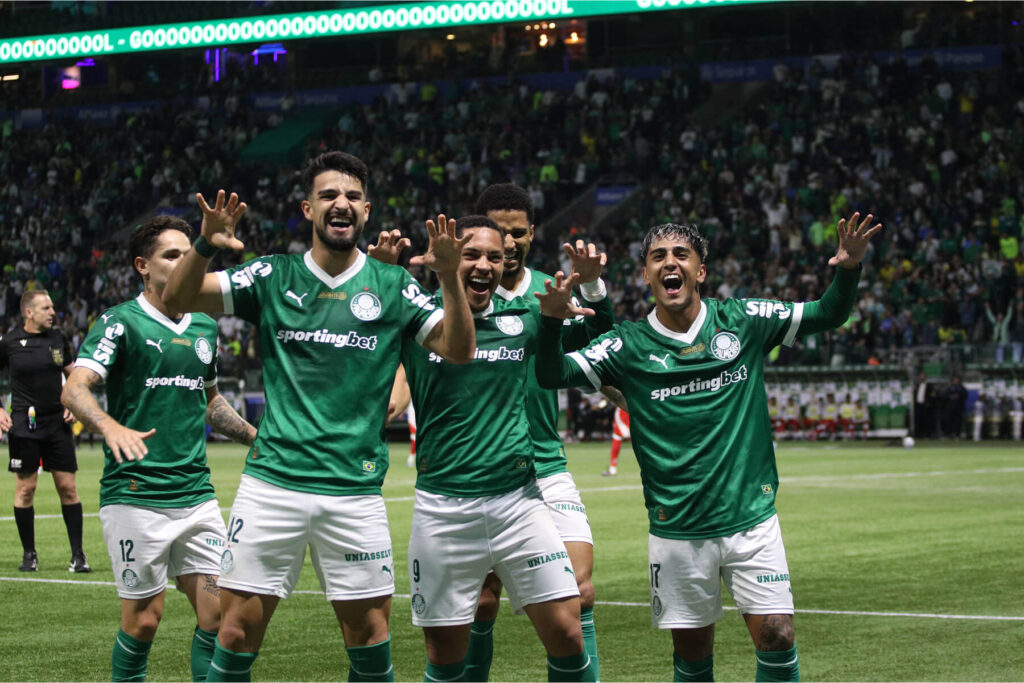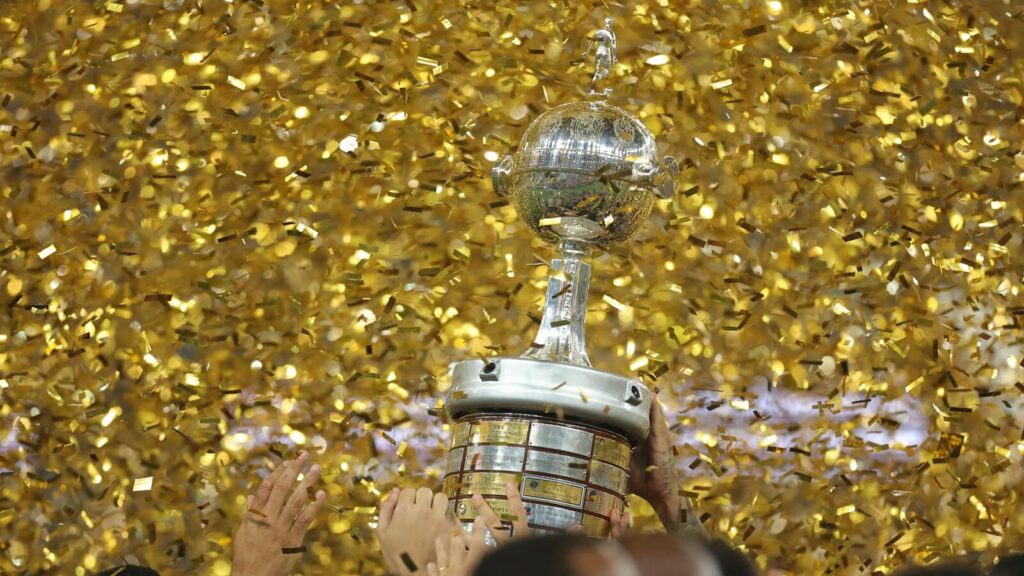Since 2019 brazilian clubs have dominated the CONMEBOL Libertadores. But two teams are ready and capable of ending that green-and-yellow supremacy: Racing from Argentina and LDU from Ecuador.
The Argentine side faces Palmeiras in one semifinal, while the Ecuadorians take on Flamengo in the other. Both teams arrive in the final four with positive results against Brazilian opponents.
LDU: Brazilian teams’ nightmare since 2008
LDU return to a Libertadores semifinal for the first time in 17 years — and it was in that 2008 campaign that the Quito-based team first stunned a Brazilian rival, lifting the trophy over Fluminense.
In this edition, the Ecuadorians finished above Flamengo in the group stage. In the Round of 16, LDU knocked out the defending champions Botafogo with a 2–1 aggregate win.
Curiously, LDU are managed by Brazilian coach Tiago Nunes, 49, whose familiarity with Brazilian football has clearly played a role in the team’s success.

That “know-how” was evident in the quarterfinals, when LDU swept São Paulo aside with a convincing 3–0 aggregate victory.
Racing won the Recopa in Rio de Janeiro
The traditional Avellaneda club isn’t far behind LDU when it comes to upsetting Brazilian sides. Earlier this year, Racing lifted the Recopa Sudamericana after beating Botafogo twice — 2–0 at home and another 2–0 away in Rio de Janeiro.
In the Libertadores group stage, Gustavo Costas’ team also dominated Brazilian opposition, defeating Fortaleza 1–0 in Buenos Aires and 3–0 in Ceará.

A huge financial gap
Their success against Brazilian teams becomes even more impressive when comparing squad values. According to Sofascore data, Flamengo’s squad is valued at €160 million, while Racing’s is worth around €61 million — meaning the Brazilian team costs 2.6 times more.
Palmeiras, on the other hand, boast a squad valued at an astonishing €185 million, whereas LDU’s total is just €18 million — a tenfold difference that highlights the financial gulf between the two semifinalists.
Despite this economic disparity, recent results show that big investments don’t always guarantee success on the pitch.

Strengths and key players
Without the million-euro budgets of their rivals, both Racing and LDU rely on their tactical discipline and strong team identity to keep upsetting Brazilian clubs.
For LDU, altitude and defensive solidity remain their greatest weapons. Playing at 2,850 meters above sea level, the Quito side haven’t lost to a Brazilian club at home since 2021 — five wins and three draws since then. Blending experience and youth, Los Universitarios have shown collective strength and composure against heavyweights throughout the campaign.
Back in a Libertadores semifinal for the first time in 28 years, Racing are counting on Argentine passion and tradition to keep their dream alive.
Under Gustavo Costas, La Academia combine intense pressing with quick transitions and a combative midfield. Key player Aníbal Moreno Sosa currently holds the team’s best average Sofascore rating in the tournament (7.72).
History and honors
Founded in 1930, LDU symbolize the rise of Ecuadorian football. The club have won 12 national championships and reached their golden era in the late 2000s, when they conquered the continent. Their trophy cabinet includes one Copa Libertadores (2008), two Copa Sudamericanas (2009 and 2023), and two Recopa Sudamericanas (2009 and 2010).
Racing, founded in 1903, are one of Argentina’s historical giants, with 18 domestic titles including league and cup triumphs. Internationally, they were crowned Copa Libertadores champions in 1967 and went on to win the Intercontinental Cup that same year, beating Celtic of Scotland.
The first legs of the Libertadores semifinals take place this week: Flamengo host Racing on Wednesday, while Palmeiras travel to Quito to face LDU on Thursday. Follow all results and match stats live on the Sofascore app.
